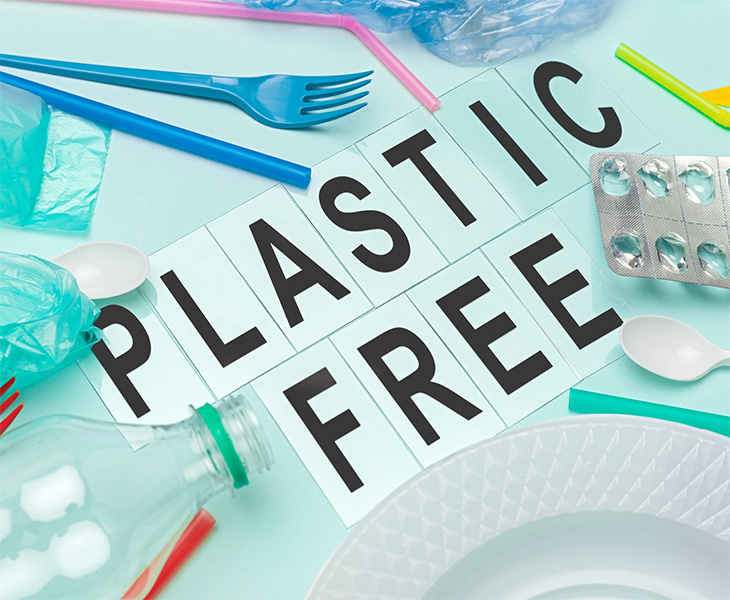Did you know, it takes just 1-minute for Australians to produce a tonne of plastic waste? In 2020, plastic packaging and single-use plastic goods accounted for more than 60 percent of waste collected in NSW. According to the IPSOS and BRITA Market Intelligence analysis, 2 million Australians consumed more single-use plastic during the lockdown than in prior years.
Plastic pollution is one of the most serious environmental issues around the world. It contaminates our planet most insidiously through our rivers, oceans, mountains, and food. The plastic pollution in Australia has prompted numerous state and territory governments to implement a ban on hazardous single-use plastics and replacing them with sustainable alternatives such as biodegradable cutlery, straws, cups, plates, and stirrers.
So, if you want to minimise your impact on the planet, participating in Plastic Free July is a great way to get started on your sustainability journey. To help you out, we’ve put together a guide on how you can make small changes that will help you to go plastic free.
Audit what you buy
According to Planet Ark, more than 80 percent of plastic food packaging cannot be easily recycled and ends up in landfill. Before getting started, consider what you buy on a regular basis. Start examining the products that utilise the most plastic packaging. Once you’ve figured out how much plastic you’re using, you can look into what can be recycled and what potential sustainable plastic free swaps you can make. Consider alternatives to plastic packaging, such as paper, glass, or even zero-packaging.
Switch up your personal care routine
According to the Office of Sustainability at the University of Connecticut, the cosmetics industry creates around 120 billion units of plastic packaging each year, out of which 70 percent ends up in landfill and sits there for hundreds, if not thousands of years. We often overlook the fact that most cosmetics are packaged in single-use plastic, which is not recyclable in standard council recycling bins. While switching from your long-term cosmetic staples can be a bit challenging, you can consider trying eco-friendly plastic free alternatives that are readily accessible in recyclable packaging and are excellent for both the environment, and your skin.
Learn how to recycle correctly
Did you know that putting a single contaminated recyclable in with your recycling can contaminate the entire load? Learning the right way to recycle and discriminating between recyclable and non-recyclable materials can help ensure that our collective efforts are not wasted. Anything smaller than a credit card should not be thrown away in the recycling bin. Straws, bottle caps, coffee pods, plastic cutlery, and paperclips, for example, are too small to be separated and can clog the recycling machine. Furthermore, a lot of plastic like plastic bags or cling wraps aren’t recyclable at the kerbside. Plastic recycling might seem a bit overwhelming at first but learning how to recycle properly can help lessen your environmental impact.
Buy in bulk
Every year, Australians throw away over 1.9 million tonnes of packaging. According to the Environmental Protection Agency, food packaging and containers account for around 45 percent of waste in landfill. Most plastic packaging contains hazardous chemicals that can leak into water and soil, causing damage to the environment and our food chain. Buying in bulk is a great way to cut down on plastic packaging waste. It’s not only cost-effective but also a wise and environmentally friendly alternative.
Remember to take it easy
Always remember that developing new habits takes time, patience, and commitment. Keep a positive outlook and try not to be discouraged. With a little research and preparation, you can succeed in ditching plastic. According to the 2020 International Coastal Cleanup Report, volunteers collected approximately 1.8 million plastic beverage bottles and over 600,000 plastic lids. As a matter of fact, 7 out of the top 10 collected items were food and beverage packaging/containers. Fortunately, eliminating single-use plastic from your daily life is simple. Start by investing in reusable cups and water bottles, or simply changing your plastic trash bag to environmentally friendly bin liners.

